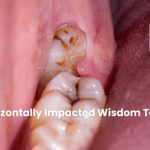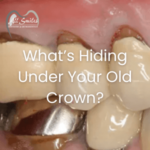
If you’ve recently had a root canal, you’re probably wondering what to expect as your body heals. While the procedure is meant to save your tooth and relieve pain, the recovery process is equally important for long-term success. In this guide, we’ll walk you through everything you need to know about root canal recovery, from aftercare tips to recommended foods. Let’s dive in!
After your root canal, the tooth will start its healing journey. During the procedure, the infected or damaged pulp inside the tooth is removed, and the space is cleaned, filled, and sealed. Though the procedure takes care of the internal issues, the area around your tooth and gum may feel tender for a few days.
Discomfort after a root canal is normal and can vary from mild to moderate. It’s your body’s natural reaction to the procedure. Any soreness you feel is typically due to the cleaning and manipulation of the surrounding tissue. Your dentist will usually recommend over-the-counter pain relievers to manage this, but the good news is that this discomfort doesn’t last long for most people.
Your body is amazing at healing itself, but a little extra help can go a long way. Here are some key tips for speeding up root canal recovery:
1. Follow your dentist’s instructions carefully. Your dentist will provide you with personalized aftercare guidelines, which might include advice on medication, hygiene practices, and scheduling follow-up appointments. Adhering to these instructions is crucial to a smooth recovery.
2. Keep the area clean. Even though your tooth has been sealed, good oral hygiene remains essential. Be gentle around the treated tooth when brushing and flossing, but make sure you’re keeping up with your routine.
3. Avoid strenuous activity. Give your body time to heal by resting for the first day or two. Overexertion can cause unnecessary pressure on the treated area and slow down recovery.
4. Stay on top of pain management. It’s normal to experience some discomfort after the procedure, but you don’t have to suffer. Take your anti-inflammatory medication as recommended, and use ice packs to reduce swelling if needed.
One of the most common questions people have after a root canal is about food. What can you eat, and what should you avoid? Eating the right foods post-root canal can make a big difference in your recovery.
Immediately after the procedure, your mouth might feel numb, so it’s best to avoid eating until the numbness wears off. Once you’re ready to eat, opt for soft foods that are easy to chew and won’t irritate the treated area. Here are some good options:
On the flip side, try to avoid hard, crunchy, or sticky foods that could damage the temporary filling or the tooth itself. Foods like nuts, chips, and gum are best avoided until your dentist gives you the all-clear.
1. As your recovery progresses, it’s important to keep an eye on your healing process. If your dentist placed a temporary filling, you’ll need to return for a follow-up appointment to get a permanent crown or filling. This final restoration is essential for protecting your tooth and ensuring it functions normally in the future.
2. Continue to practice good oral hygiene by brushing twice daily and flossing. Keeping your teeth and gums healthy will help prevent future problems.
3. If you notice any unusual symptoms like severe pain, swelling, or signs of infection (such as fever or pus), contact your dentist right away. These could be signs that further treatment is needed.
4. Your tooth will need to be protected and reinforced with a crown to prevent fracture. A crown is a type of dental restoration that covers the tooth to protect it from breaking.
5. The strong forces that are applied to the teeth when chewing can split the tooth in half. A crown will distribute the forces properly, preventing the tooth from fracturing.
The root canal procedure itself is just one step in the process. How you care for your tooth afterward plays a big role in your overall recovery. By following these simple root canal aftercare tips and paying attention to your diet—especially choosing the right food after a root canal—you can help your body heal quickly and minimize discomfort. Before you know it, you’ll be back to your regular routine, and your tooth will feel good as new!

The Hidden Risks of Medical Tourism in Dentistry




What to Expect After a Dental Filling

| M | T | W | T | F | S | S |
|---|---|---|---|---|---|---|
| 1 | 2 | 3 | 4 | 5 | 6 | |
| 7 | 8 | 9 | 10 | 11 | 12 | 13 |
| 14 | 15 | 16 | 17 | 18 | 19 | 20 |
| 21 | 22 | 23 | 24 | 25 | 26 | 27 |
| 28 | 29 | 30 | 31 | |||
